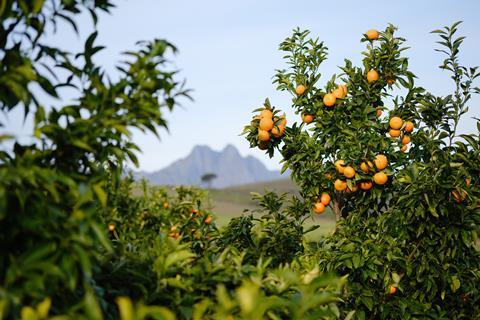Frustrations rise across South African citrus industry as a lack of government support is blamed for ongoing problems
A lack of support from South Africa’s government in ensuring an effective citrus export industry has been highlighted, as losses mount from a variety of problems.

The South African citrus industry is now taking its campaign against the new EU citrus import regulations to the upcoming African Union–European Union (AU-EU) Agriculture Ministerial Conference.
The country’s Citrus Growers’ Association (CGA) has now contacted the minister of agriculture, land reform and rural development, Thoko Didiza, to place the dispute on the agenda at the fifth AU-EU event, which takes place in Rome.
Citrus insiders have, however, warned that they do not expect much from the initiative, blaming ”a lack of effective government intervention over a wide field” for the industry’s inability to become a source of economic growth and job creation in South Africa.
“Do not hold your breath,” said one citrus insider, who pointed out that the South African government has now dragged its heels for years where it came to enabling a conducive environment for successful citrus exports, one of the most important industries in the country for employment.
In its latest letter to the government, CGA chief executive Justin Chadwick asked Didiza to place the “unfair and discriminatory pest regulations” of the EU at centre stage in Rome.
“AU and EU ministers of agriculture will be attending the conference along with representatives of various international organisations, which makes it a crucial opportunity for the South African government to push for a resolution on these critical matters in order to safeguard the 140,000 jobs our sector sustains,” said Chadwick.
“The local orange export season starts in all earnest towards the end of July and the impact of the new false codling moth regulations (FCM) are expected to be devastating,”
Chadwick previously claimed that the introduction of the new EU regulations in the middle of last season resulted in huge losses for the industry.
“Current estimates are that around 20 per cent of oranges produced for Europe will not be shipped this year because of the new regulations,” he continued. ”This means that approximately 80,000 tonnes of oranges might not make it to European supermarket shelves, resulting in a further R500m economic blow to the industry.”
Sources have pointed the finger directly at the South African government for not doing its job in creating a successful citrus environment.
“The electricity supply system is in a mess, railways and ports are not functioning, crime is out of control and labour legislation is severely damaging the industry,” sources said. “On top of this, as far as this issue with the EU is concerned, the government has failed the industry for years.”
While sources said pressure should be maintained on the government to do something about the EU dispute, few people expect much from the AU-EU summit.
Chadwick said the CGA remained of the view that the new regulations had no basis in science and prescribed cold treatment that simply was not warranted.
“Our industry has presented clear evidence that our stringent FCM risk management system is highly effective ensuring that 99.9 per cent of oranges entering the EU are pest free, with only two FCM interceptions detected in the over 400,000 tonnes of oranges shipped to the region in 2022.
“Despite this evidence, months of consultations between the South African government and EU counterparts at a WTO level have achieved no progress on the matter,” he added.



